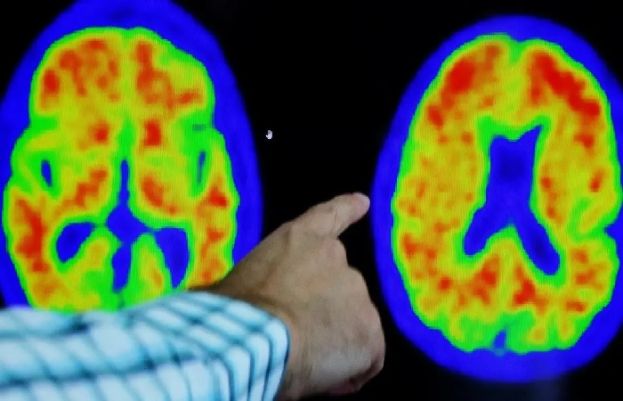Individuals carrying two copies of the APOE4 gene are ‘virtually guaranteed’ to develop Alzheimer’s and face symptoms at an earlier age, researchers told the international press on Monday. The study is set to redefine such carriers as having a ‘new genetic form’ of the mind-wasting disease. The reclassification may change the current norms surrounding Alzheimer’s research, diagnosis and approaches to treatment, according to the researchers. The study was published in the journal Nature Medicine. “Through the data, we are saying that perhaps this is a genetic form of this disease, not merely a risk factor indication” the co-author of the study, Sterling Johnson, from the University of Wisconsin’s Alzheimer’s Disease Research Center told reporters at a press briefing. Scientists have known for three decades that individuals with two copies of APOE4 gene variant, have a significantly higher risk of developing the disease, as compared to individuals with the most common version of the APOE gene, known as APOE3. About 2 to 3 per cent of the general population, or about 15 per cent of people with Alzheimer’s, have two copies of the APOE4 variant. “This study adds compelling data to suggest that people with two copies of this gene are almost guaranteed to develop Alzheimer’s if they live long enough, and that they will develop Alzheimer’s earlier than people without this gene,” stated professor Tara Spires-Jones, an Alzheimer’s researcher at the University of Edinburgh (Tara was not involved in the study). Dr. Juan Fortea and his colleagues, from the University of Barcelona conducted an in-depth study of more than 3,000 brains donated from the US National Alzheimer’s Coordinating Centre. They also delved into biological and clinical data on more than 10,000 individuals from five datasets in three countries. They found that by the age of 65, at least 95pc of people with two copies of APOE4, known as ‘homozygotes’, had abnormal levels of an Alzheimer’s-related protein termed ‘beta amyloid’ in their spinal fluid, while 75pc had positive brain scans for amyloid. Nearly all APOE4 homozygotes in the study had higher levels of amyloid at the age of 65 than people who were not carrying the risk variant. The findings suggest APOE4 homozygotes meet the three fundamental criteria for being a genetic disease. Firstly, almost all individuals with these two gene variants have Alzheimer’s biology, they all develop symptoms at about the same rate and clinical and biological changes occur in a sequence that may be predicted, the researchers stated. A Professor of the UCL Genetics Institute, namely David Curtis (who was not involved in the research), remained unconvinced of the findings. “I do not see anything in this paper to justify the claim that carrying two copies of APOE4 represents some ‘distinct genetic form’ of Alzheimer’s disease’,” he said in a statement. “No matter how many (copies) of APOE4 one carries the underlying disease processes seem similar across cases of Alzheimer’s disease” he said. The findings could have broader implications for the recently approved Alzheimer’s treatment ‘Leqembi’ by Eisai and Biogen. This a drug that reportedly removes amyloid from the brain. In clinical trials, patients with two copies of the APOE4 variant depicted much higher rates of brain bleeding and swelling associated with the treatment. In view of this, some centres shy away from treating these patients, Dr. Reisa Sperling, who worked on the study, stated at the press briefing.
People with two copies of a risk gene have genetic form of Alzheimer’s, say scientists

